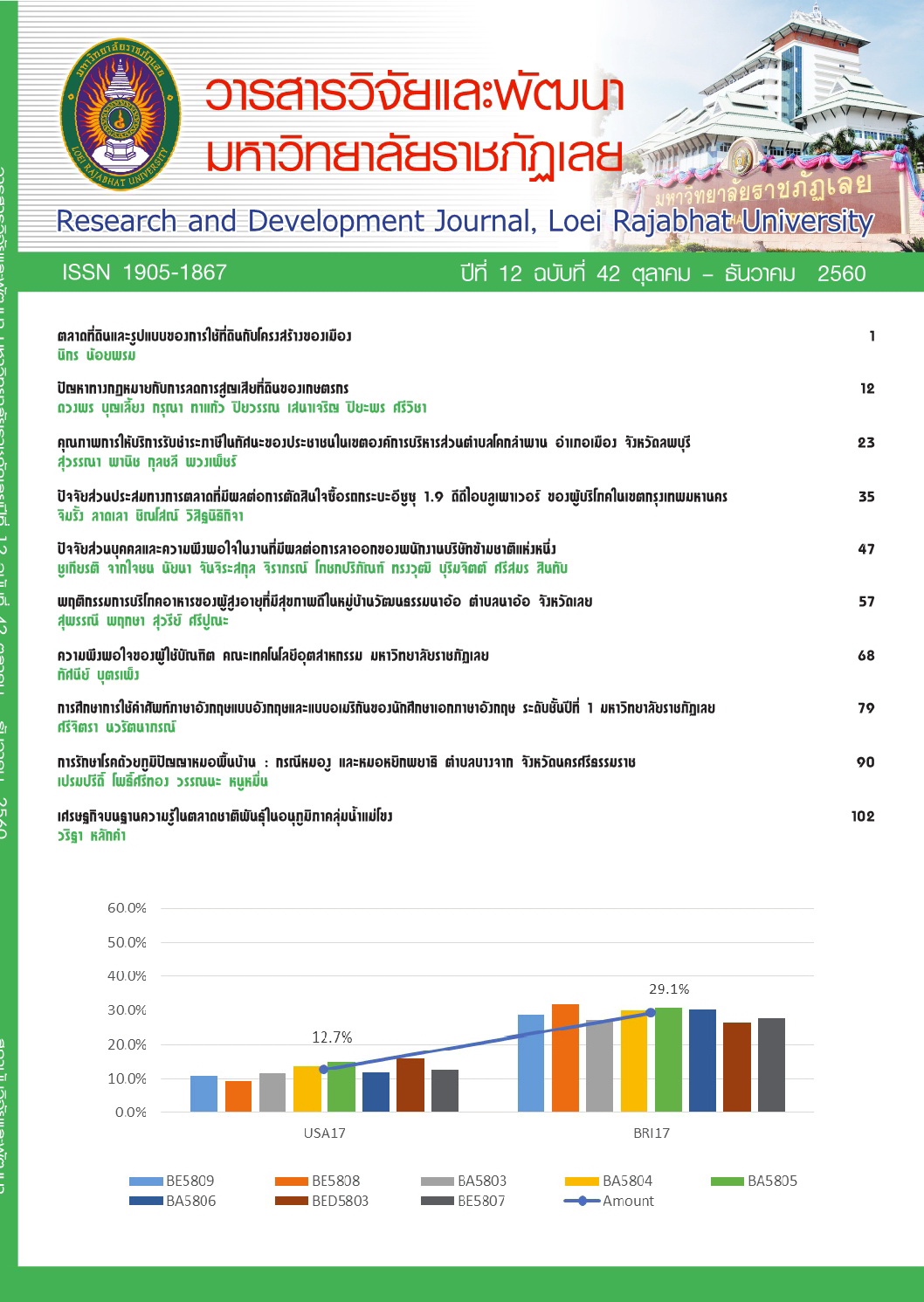การรักษาโรคด้วยภูมิปัญญาหมอพื้นบ้าน : กรณีหมองู และหมอหยิกพยาธิ ตำบลบางจาก จังหวัดนครศรีธรรมราช
Keywords:
ภูมิปัญญาหมอพื้นบ้าน, หมองู, หมอหยิกพยาธิ, folklore healing, the snakebite folk medicine healer, the parasite folk medicine healerAbstract
บทคัดย่อ
บทความวิจัยนี้มุ่งศึกษาการรักษาโรคด้วยภูมิปัญญาหมอพื้นบ้าน กรณีหมองู และหมอหยิกพยาธิ ตำบลบางจาก จังหวัดนครศรีธรรมราช วิธีศึกษาคือการสัมภาษณ์เชิงลึกและการสังเกต กลุ่มผู้ให้ข้อมูลคือ หมองูและหมอหยิกพยาธิ ผู้วิจัยทำการวิเคราะห์ข้อมูลเชิงคุณภาพด้วยการใช้แนวคิดการศึกษาคือ 1) คติชนด้านการสื่อสารการแสดง และ 2) คติชนด้านบทบาทหน้าที่ในการอธิบายบทบาทการรักษาโรคด้วยภูมิปัญญาหมอพื้นบ้าน ผลการศึกษา พบว่า หมองู และหมอหยิกพยาธิ มีการประกอบพิธีกรรมรักษาโรค ช่วงแรกมีการสวดบูชาพระรัตนตรัยเนื่องจากหมองูและหมอหยิกพยาธิมีความเลื่อมใสศรัทธาในพระพุทธศาสนา และระลึกถึงครูผู้มอบวิชาความรู้เพราะถือเป็นบุคคลสำคัญที่ช่วยอำนวยการรักษาให้สัมฤทธิ์ผล ตลอดจนเป็นผู้ให้วิชาการรักษาแก่หมองูและหมอหยิกพยาธิ ช่วงที่สองมีการท่องคาถาประกอบการรักษา คาถารักษาผู้ที่ถูกงูกัดและคาถาหยิกพยาธิมีหลักสำคัญคือการอาศัยอำนาจคุณพระศรีรัตนตรัย มาช่วยในการรักษา มีเนื้อความกล่าวถึงโรคและวิธีการรักษาโรค ช่วงที่สามของการรักษามีการบอกข้อห้ามและ ข้อปฏิบัติสำหรับผู้ป่วย นี่เป็นการให้ความร่วมมือกับหมอพื้นบ้านในการรักษาโรคด้วยตามคำแนะนำของหมอ นอกจากนี้ผู้ป่วยได้มีโอกาสไปวัดเพื่อทำบุญสร้างขวัญและกำลังใจแก่ผู้ป่วยเอง
ทั้งนี้ คาถาและพิธีกรรมที่ใช้ในการรักษาโรค เป็นสิ่งที่ชาวบ้านมีความเชื่อมั่นในการเลือกรับการรักษา คาถาและพิธีกรรมมีบทบาทในการตอบสนองความมั่นคงทางด้านจิตใจให้แก่ผู้ป่วย ส่วนพฤติกรรมและวัตถุสัญลักษณ์ในพิธีกรรมที่อ้างถึงพระพุทธศาสนาและครูผู้มอบวิชาความรู้ รวมถึงคาถาที่ใช้ในการรักษาโรค สิ่งเหล่านี้มีบทบาทในการเชื่อมความสัมพันธ์ระหว่างสถาบันทางสังคม โดยมีหมอพื้นบ้านเป็นศูนย์รวมของการเชื่อมโยงความสัมพันธ์ที่ดีแก่ชาวบ้านทั้งในแง่การดูแลสุขภาพ การสร้างความเอื้ออาทร และการทำนุบำรุงศาสนา นี่คือภูมิปัญญาท้องถิ่นจนทำให้พื้นที่ตำบลบางจากมีระบบการแพทย์พื้นบ้านเป็นของตนเอง ถือเป็นการร่วมมือกันทางสังคมในการแก้ปัญหา ด้านสุขภาพขั้นพื้นฐานของคนในชุมชน
Abstract
This research article’s objective was to study the folklore healing of snakebite and parasite folk medicine healers in Bang Jak sub-district of Nakhon Si Thammarat Province in Thailand. In conducting the research, in-depth interviews and observations were launched on the informants, including snakebite and parasite folk medicine healers. The qualitative analysis employed the conceptual frameworks as follows: 1) folklore performance and communication; and 2) folklore functions in order to describe roles of folklore healing. The findings revealed that as part of the healings, the snakebite and parasite folk medicine healers performed spiritual rites consisting of three phrases. The first phase, or “the Triple Gem Praying”, reflects the healers’ strong belief in Buddhism and respect for their masters who are believed to be able to bring about successful healing and had passed on the folklore healings to them. The second phase involves medicine incantation, including a chanting of the Triple Gem, the diseases as well as healing methods. The last phase allows the healers to provide prohibitions and health practices for their patients; it is also seen as a sign of cooperation between the patients and the healers and as a way for the patients to make merit at temples and build moral support for themselves.
Today, the incantations and rites used as part of the healings are strongly believed by the villagers as an alternative healing, and they also play a significant role in bringing to the patient mental stability. Behaviors and meanings of semiology in the rites involving Buddhism, the healers’ masters, and healing incantations all play vital roles in nurturing the relationships among social institutions. Folk medicine healers, therefore, act as the center of the community that provides health care advice, builds empathy among the villagers and conserves religious teachings and local wisdom. Due to the folk medicine healers’ roles, Bang Jak Sub-district can still maintain its folk medicine system, thus reflecting social cooperation on fundamental health problem solutions of the community.
Published
Issue
Section
License
ข้อความที่ปรากฎในวารสารฉบับนี้เป็นความคิดเห็นของผู้เขียนแต่ละท่าน สถาบันวิจัยและพัฒนา มหาวิทยาลัยราชภัฏเลย และกองบรรณาธิการ ไม่จำเป็นต้องเห็นด้วยและไม่มีส่วนรับผิดชอบใดๆ
สถาบันวิจัยและพัฒนา มหาวิทยาลัยราชภัฏเลย ขอให้ผู้อ่านอ้างอิงในกรณีที่ท่านคัดลอกเนื้อหาบทความในวารสารฉบับนี้






